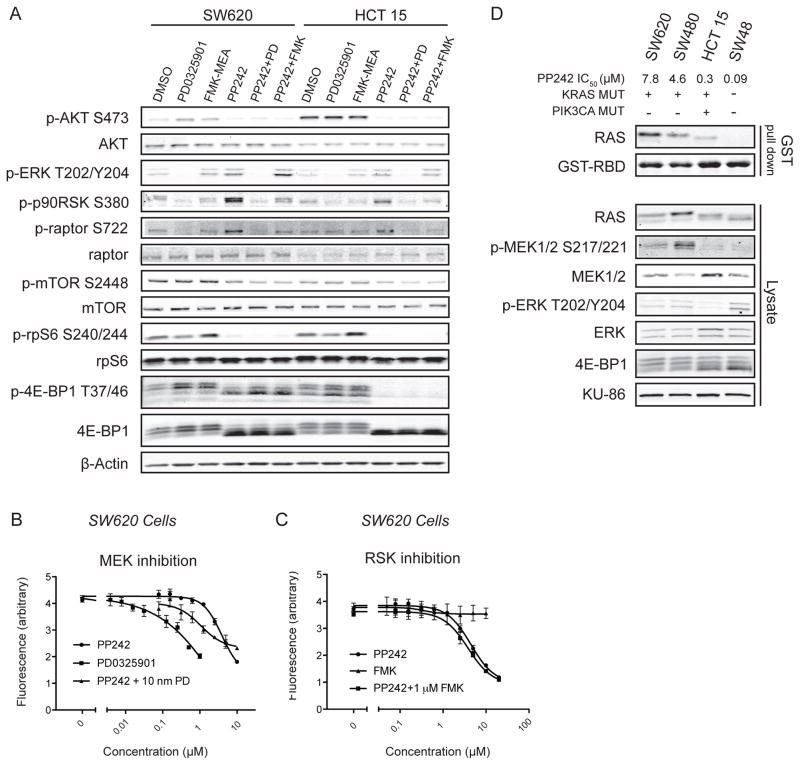Figure 3.
Inhibition of MAPK signaling does not alter mTORC1 substrate phosphorylation (A) Treatment of cell lines with MAPK inhibitors does not sensitize mTOR substrates to PP242 inhibition. Cells were treated with the MEK inhibitor PD0325901 (20 nM), the p90RSK inhibitor FMK-MEA (3 μM), PP242 (1 μM) singly or in combination for 1 hour. Neither FMK-MEA nor PD0325901 sensitize mTOR substrates to PP242 treatment. (B–C) Inhibition of ERK but not p90RSK augments the cell growth arrest induced by PP242. The MEK inhibitor PD0325901 is a potent inhibitor of cell growth, but selective inhibition of ERK substrate p90RSK by FMK-MEA does not recapitulate this phenotype in a three-day cell growth assay measured using a resazurin assay. (D) RAS-GTP loading, but not MAPK pathway activation, correlates with resistance to PP242. Glutathione pull down of RAS-GTP with GST-RBD shows high RAS-GTP levels in unstimulated KRAS mutant PP242 resistant cell lines. Significantly different levels of RAS-GTP activation were observed within KRAS mutant cells.

